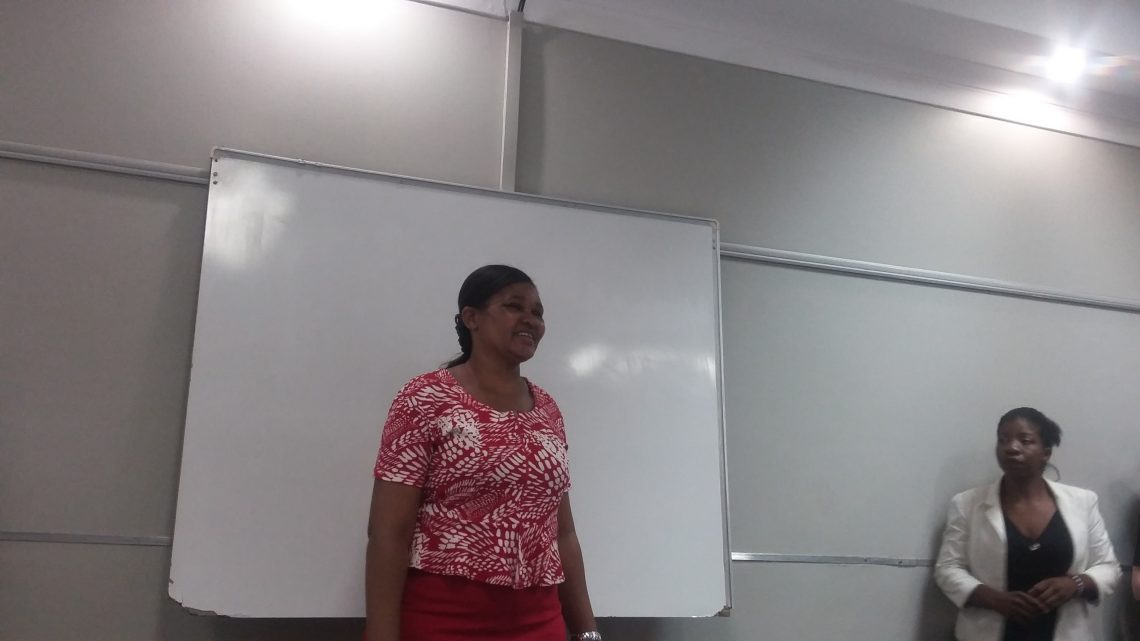By Byron Mutingwende
In pursuit of improving human rights through the participation of people with disabilities in social, economic and political spheres in Zimbabwe, youths with disabilities are monitoring the implementation of the United Nations Convention on the Rights of People with Disabilities (UNCRPD).
Elisa Ravengai, the National Coordinator of the Federation of Disabled Persons Organisation in Zimbabwe, speaking at a workshop on domestication and implementation of the UNCRPD in Harare on 30 November 2017 said they have been implementing the “communities in action” programmes to influence policy formulation and review in the country.
“The programme was a game-changer in disability mainstreaming. Civil society organisations were influenced to change their view from charity to rights-based approach when dealing with persons with disabilities (PWDs). Disability should be looked at as a human rights and development issue. We are now focusing on mainstreaming of disability and inclusivity in all spheres of life. We have included youths so that we talk about issues of disability with one voice,” Ravengai said.
She said there was need to do more on situational analysis on the inclusion of disability rights and come up with solutions to challenges faced by PWDs. Ravengai cited Article 29 of the UNCRPD which calls for participation of PWDs in political and public life. Zimbabwe ratified the convention in 2013 and Article 35 compels PWDs to contribute to the report state parties.
Abraham Mateta, a disability rights activist said the UNCRPD is focused on substantive equality as opposed to formal equality. Formal equality is the notion that all people are equal whereas substantive equality takes into account the differences and diversity of people.
“The UNCRPD came into effect after realisation that state parties and the UN were not empowered enough to come up with something tangible for PWDs, resulting in the invitation of PWDs to give their input. The UNCRPD came into force in 2007 and Zimbabwe became a signatory that year. In 2013, Zimbabwe ratified the convention and became a state party bound by the convention,” Mateta said.
He said that because Zimbabwe is a dualist state means the convention doesn’t automatically get into the statute books by mere ratification. However, signing the convention gives it a persuasive authority because it can be cited in a court of law.
“The UNCRPD is not yet part of our statutes so there is need to domesticate it so that it can have the same force as an Act of Parliament. Because Zimbabwe is in the process of aligning the current disability law, we can domesticate it by writing a section which says the UNCRPD shall have the force of an Act of Parliament,” Mateta said.
The UNCRPD is a comprehensive compendium of disability rights because not only the state is the primary duty-bearer but the duty extends to the private sector as well. The convention speaks to various principles including those on non-discrimination and inherent dignity.
Zimbabwe has not yet finalised and sent its report to the UN Committee on the Rights of Persons with Disabilities. Mateta said the situation could be so because in the Mugabe administration, disability was put under the department of social welfare and had no stand-alone department of its own. The National Disability Board’s term of office expired in February and it appears that the country has been running without paying attention to PWDs yet they constitute 10-15% of the population.
Juliet Muzondo, Leonard Cheshire Disability Zimbabwe (LCDZ) Rights Advocacy Project Officer said the implementation of the UNCRPD and disability rights would mark the government’s recognition of its responsibility to protect all vulnerable groups within society, and its commitment to the application of universally acknowledged human rights to all of its citizens.
